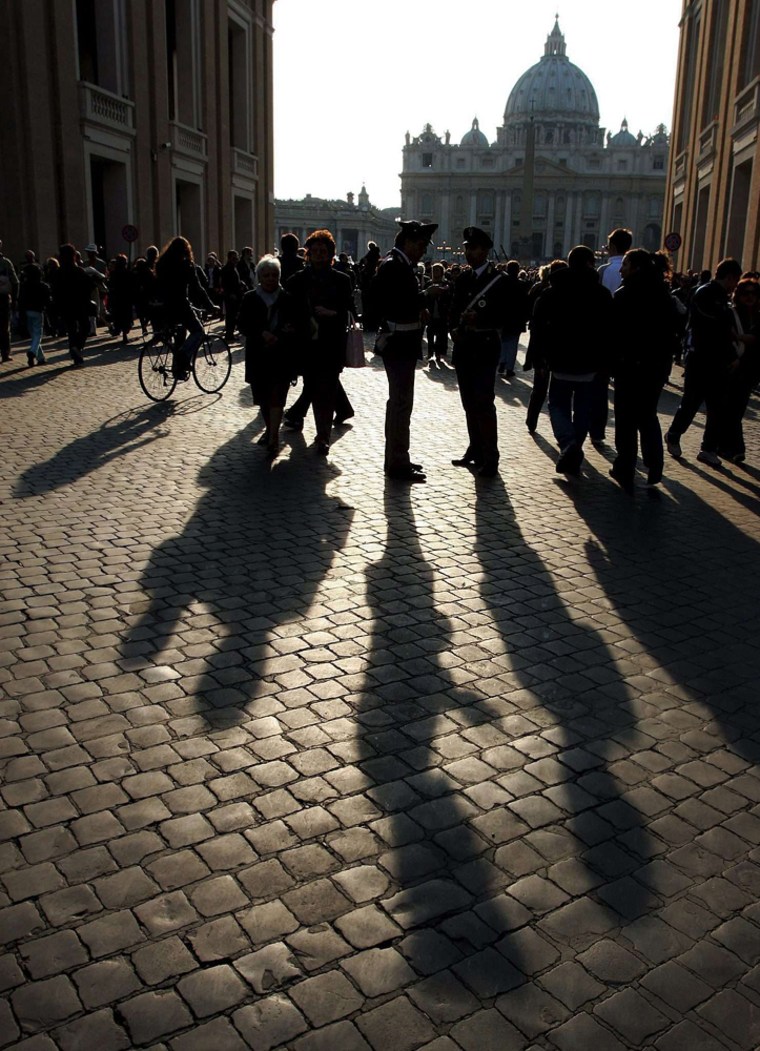With Pope John Paul II’s funeral expected to draw up to 2 million people, at least one consumer group is accusing cafes, restaurants, grocery stores and hotels near St. Peter’s Square of boosting prices to gouge tourists and pilgrims.
In normal times, this would be a lull in tourism, after the rush of Easter and before the summer holidays. But consumer groups estimated Monday that local businesses would earn more than $122 million in about two weeks.
Visitors were expected to spend an additional $193.4 million just on transportation — trains, plane tickets and gasoline — said consumer watchdog Codacons. The group warned that cafes, restaurants, grocery stores and hotels near St. Peter’s Square were increasing prices to gouge tourists and pilgrims.
A spokesman for Codacons, Carlo Rienzi, said revenue estimates were based on the arrival of 2 million people, and noted the figures could be higher if more people come.
500,000 in the Square?
Authorities were estimating that well over 500,000 people would try to cram into St. Peter’s Square on Friday alone for the funeral.
Rome’s residents number 3 million, and it’s uncertain how even this tourist-geared city would handle such an influx. Special camps were being set up in three locations on the outskirts of the city to accommodate visitors who cannot find or afford hotel rooms.
Codacons said it started getting calls Sunday from people who live near St. Peter’s complaining local stores had raised prices.
“As is often the case, exploitation is always around the corner, and doesn’t stop even when faced with such strong and dramatic events as the death of the of the Holy Father,” Rienzi said.
Neighborhood store owners and employees interviewed denied changing their prices over the last few days.
“There is such a great influx of people that there’s no need to,” said Azzurra Giovannola, 22, a waitress at a cafe near the Vatican. She added, however, that “obviously, there’s always some exploitation.”
A spokesman with the Rome Chamber of Commerce said there was no immediate estimate of how much extra money the pilgrims and tourists would bring in.
Estimate: Happy businesses
But Rienzi said his group had estimated additional earnings of $64.4 million from the sale of religious artifacts, including rosaries, images and small statues of saints; $25.8 million from restaurants, bars, cafes and grocery stores, and $32.2 million from hotels.
Orlando Salvio, a waiter at a restaurant near St. Peter’s, said businesses are eager to cash in.
“Here everyone is happy — they’re sad in a way, but happy in another,” he said. “Obviously, the [business] owners are the happy ones.”
Federalberghi, an association that represents hotels, said Italian law prohibits hotel owners from raising prices beyond their declared maximum. Hotels also cannot legally add beds in rooms at the last minute, unless they are cots for small children.
But “obviously, this is market law — we’re going to go to the maximum price,” said Emilio La Serra, a press officer with Federalberghi.
“The street vendors might try to profit from this, but not us, or we would lose our regular clients,” said Gianluca Cantini, who owns an ice cream store near the Vatican. “I can’t have a list of prices for clients and one for tourists, and switch it around every time!”
